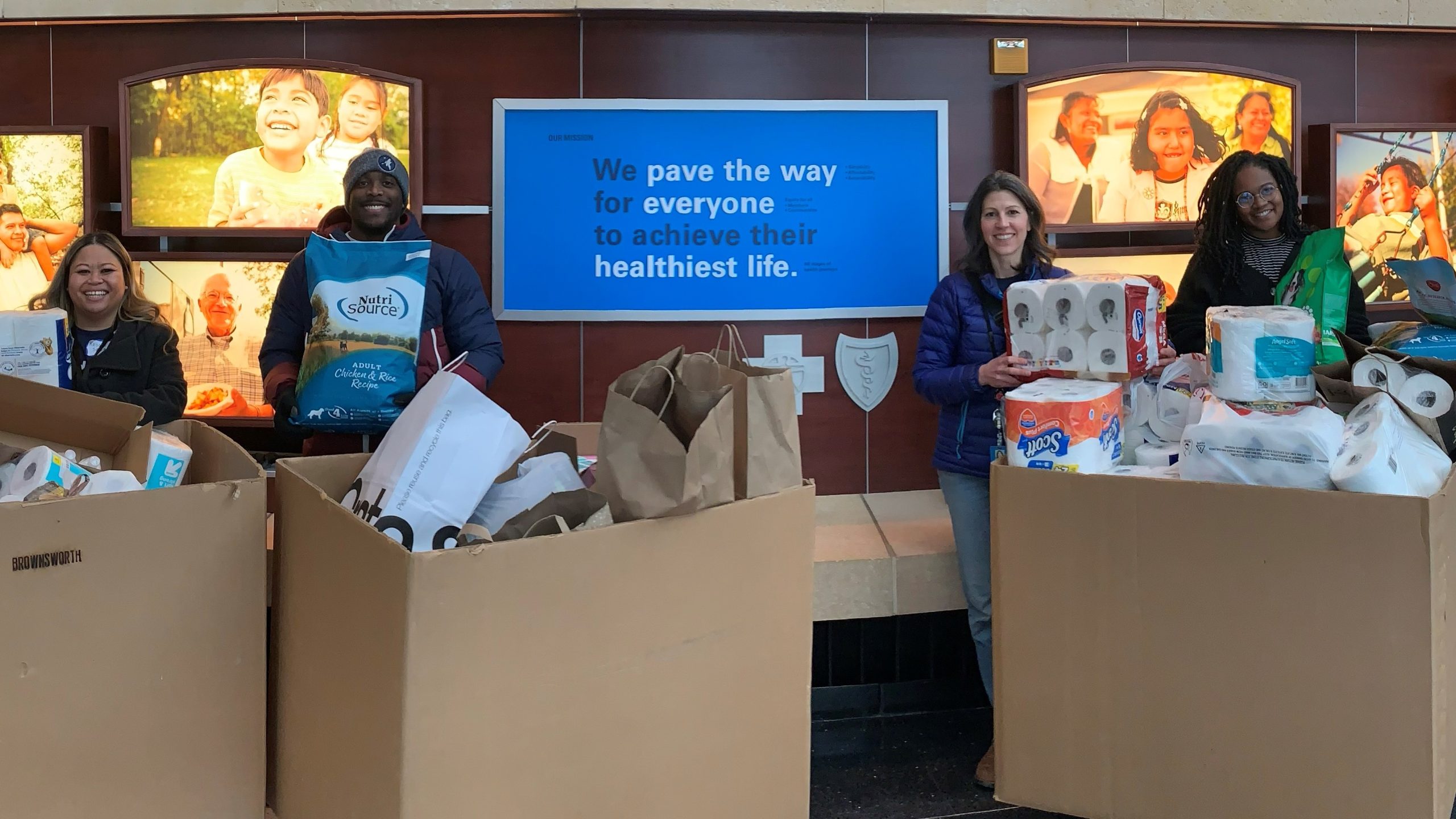Honoring Black History Month 2023
February 2, 2023Acknowledging the Past While Inspiring Change for the Future
Tom Noon is a principal financial analyst at Blue Cross and Blue Shield of Minnesota and chair of the company’s African American Professionals Network. In recognition of Black History Month, Noon shared his perspective on the significance of the countless contributions and sacrifices made by generations of African Americans throughout the country’s history – and why the message is so important today.
 “For me, this month is an important time for reflection and elevating the accomplishments of Black history,” said Noon. “It’s critical to shed light and raise awareness on the successes that were vital to the progress of not only Black society, but society in general.”
“For me, this month is an important time for reflection and elevating the accomplishments of Black history,” said Noon. “It’s critical to shed light and raise awareness on the successes that were vital to the progress of not only Black society, but society in general.”
Each year, The Association for the Study of African American Life and History designates a theme for Black History Month. The theme for 2023 is Black Resistance. For Noon, the topic speaks to the need for resiliency.
“Don’t get discouraged,” Noon urges. “It’s important to keep pushing forward. Look at your influence circle and determine what you can do to inspire change. Every action, however small it may seem, can inspire someone.”
Noon emphasized that ongoing recognition of Black American achievements can create momentum for everyone to help create the society as we wish it to be. He hopes more people will see Black History Month as an opportunity to get involved in their own communities in ways that are most meaningful to them.
“What do you see in your community that needs to change? If we examine ourselves individually, we can find something we’re really passionate about and identify a way to engage. When you do that, it doesn’t feel like a task, it’s letting that passion drive you.”
If people are unsure where to start, Noon suggests simply taking the time to learn more. “There are so many events happening around the Twin Cities during Black History Month," he said. "I encourage everyone to dig in, explore more, experience more, support local Black-owned businesses and lift your community up.”

Noon puts his beliefs into action by frequently giving back to the community as a Blue Cross volunteer. He recently took part in the company’s “Basics and Beyond” drive for the Hallie Q. Brown Community Center in St. Paul, which donated hundreds of essential items – like toiletries and hair care products – that are not generally available at food shelves for those in need.
A Volunteer Experience Leads to Confronting the History of Structural Racism in Housing
Allison Corrado is a senior program officer at the Blue Cross and Blue Shield of Minnesota Foundation. For Black History Month, Corrado authored the following story about how a volunteering opportunity led to her reckoning with the history of structural racism in U.S. housing policies.
 My family moved into our Minneapolis home just over a year ago. Before we brought in any furniture, I submitted a request with the Just Deeds Project to have the racial covenant removed from the deed.
My family moved into our Minneapolis home just over a year ago. Before we brought in any furniture, I submitted a request with the Just Deeds Project to have the racial covenant removed from the deed.
My home was built in 1926. This was an era when people selected their homes out of catalogues, which were then built on a plot of land sold by a developer. In my neighborhood – and in many others across the nation at this time – a clause was written into the home deed, stating that any future sale of the property could not take place with a non-white person.
While passage of the Fair Housing Act in 1968 prohibits these racist relics from the past from being enforced, discriminatory housing practices have direct connections to inequities that exist today.
I learned about racial covenants through a Blue Cross volunteering opportunity with the Mapping Prejudice Project. This initiative through the University of Minnesota identifies and maps racial covenants across the Twin Cities. Together, community volunteers help to expose this practice and make connections between racist historical policies and current day racial inequities in residential segregation, property values and gaps in homeownership and wealth.
I joined these volunteer efforts in 2020 and 2021, scanning deeds and flagging any with racial covenants listed. At the time, I was scanning deeds in Ramsey County, but the map continues to grow.
Recently, I received notification that the City of Minneapolis had officially completed the process to remove the racial covenant from my home deed. I’m so thankful the program built the foundation for me to understand the issue and also provided me the tools to correct it.
Ways to Celebrate Black History Month
Check out these events happening in Minneapolis
Check out these events happening in St. Paul


